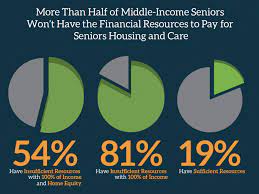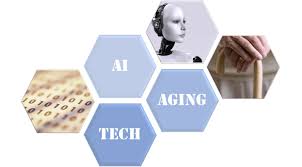Nuance Audio is a new option for people who resist traditional aids, from the company that makes Ray-Bans and operates LensCrafters.
Seekers of Meaning Podcast Posted Online March 7, 2025
What's Next Longevity Deal Talk Episode 32, January, 2025
Presentation: What's Next Longevity Venture Summit, June, 2025

 The press releases signal a busy time in Las Vegas. Viewed from afar, drowning in press releases, it is clearly a nearly fully revived
The press releases signal a busy time in Las Vegas. Viewed from afar, drowning in press releases, it is clearly a nearly fully revived  The 2024 survey is out – some might say it is positive about tech adoption. Older adults (age 50+)
The 2024 survey is out – some might say it is positive about tech adoption. Older adults (age 50+) 
 Monitoring the AgeTech market, one major trend at a time. One of the key roles of an industry analyst is to detect and predict new trends that will make a difference in the lives of older adults. Consider the five year sequence of reports below, from oldest to most recent, from the introduction of voice tech to the Covid-driven rise of telehealth to smart homes to wearables to sensors to the current research underway (stay tuned!) about
Monitoring the AgeTech market, one major trend at a time. One of the key roles of an industry analyst is to detect and predict new trends that will make a difference in the lives of older adults. Consider the five year sequence of reports below, from oldest to most recent, from the introduction of voice tech to the Covid-driven rise of telehealth to smart homes to wearables to sensors to the current research underway (stay tuned!) about  CES begins next week – but never mind – what mattered in 2022? The press releases for next week’s
CES begins next week – but never mind – what mattered in 2022? The press releases for next week’s  AI matters for older adults. Over the last few years, a growing number of applications of AI and machine learning have entered the market of
AI matters for older adults. Over the last few years, a growing number of applications of AI and machine learning have entered the market of